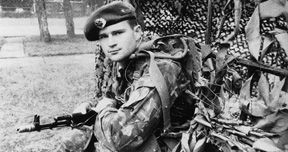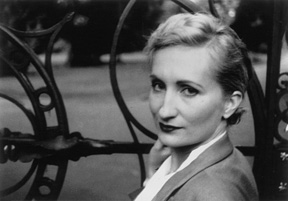Yamagata University Presents: Central and Eastern European Documentary Films After the End of the Cold War
The inaugural Yamagata International Documentary Film Festival took place in 1989, the same year as the outbreak of the Revolutions of Eastern Europe. A quarter century has passed since then and Yamagata Film Festival has continued to receive and screen images that depict the social and cultural changes of the region. In cooperation with researchers working in various fields related to these themes, the festival reflects upon the achievements of Eastern European cinema from a scholarly perspective.
The End of the Cold War and “Small Stories” in Polish Documentary Films
The Siberian Lesson
- POLAND / 1998 / Polish, Russian / Color / Video (Original: 16mm) / 57 min
Director: Wojciech Staroń
 Last Farewell USSR
Last Farewell USSR
- UKRAINE / 1994 / Russian / Color / Video (Original: 35mm) / 60 min
Director: Alexander Rodnyansky
* YIDFF ’95 FIPRESCI Prize and “We Love Cinema!” Award
During the end of the Cold War in the 1990s, the people of the former Soviet Union and countries of Central and Eastern Europe experienced an upheaval of social systems and perspectives. When a sense of order that supported both individuals and their surroundings disintegrates, how do people act and what do they seek out? We will ponder these questions during the screening of the Polish film The Siberian Lesson, a highly personal portrayal of people rebuilding connections across national borders. The film will be shown in conjunction with Last Farewell USSR, which chronicles the experiences of people facing the destruction of ideology they believed to be universal in the former Soviet Union.
[Lecture and Discussion] Speaker: Ogura Hikaru (University of Tokyo)
Hungarian Documentary Films and Issues on Contemporary History
Stubborn Dreams
- HUNGARY / 1989 / Hungarian / Color / Video (Original: 16mm) / 93 min
Director: Szobolits Béla
* YIDFF ’91 The Robert and Frances Flaherty Prize (The Grand Prize)
 I am Von Höfler (Variation on Werther)
I am Von Höfler (Variation on Werther)
- HUNGARY / 2008 / English, Hungarian/ Color, B&W / Video / 160 min
Director: Forgács Péter
* Screened in the International Competition at YIDFF 2009
While I am Von Höfler delineates the experiences of the Socialist era from the Jewish perspective, many other documentary films—ranging from a portrayal of a memory of a father who was executed during the Hungarian Revolution of 1956, to the recollection of experiences at a concentration camp—capture socialism from multifaceted standpoints. Many of these films, which capture the lives of people after the systematic transformation of the region, also confront issues relating to the environment and social minorities. Through such works we will consider the various sides of Hungarian contemporary history.
[Lecture and Discussion] Speaker: Iio Tadaki (Josai University)
The Political Regime Changes Seen in Documentary Films: The Case of Czechoslovakia
 Memories and Dreams
Memories and Dreams
- AUSTRALIA / 1993 / English / Color / Video (Original: 35mm) / 58 min
Director: Lynn-Maree Milburn
* Screened in the International Competition at YIDFF ’95
Paper Heads
- SLOVAKIA / 1996 / Slovak, Czech / Color / Video (Original: 35mm) / 96 min
Director: Dušan Hanák
* YIDFF ’97 Runner-up Prize
Included among the documentary films of Czech Republic and Slovakia are works that, against the backdrop of the failure of the Prague Spring, depict the dissidents of the Soviet Union and their experiences of surveillance and oppression during the Socialist era. Another film follows the career of President Vaclav Havel, who gained political control following the regime change. These films convey the paradox of small nations who lose their ethnic boundaries the more they uphold universal ideals such as “love” and “truth” as the principles of their ethnic identity.
[Lecture and Discussion] Speaker: Takahashi Kazu (Yamagata University)
